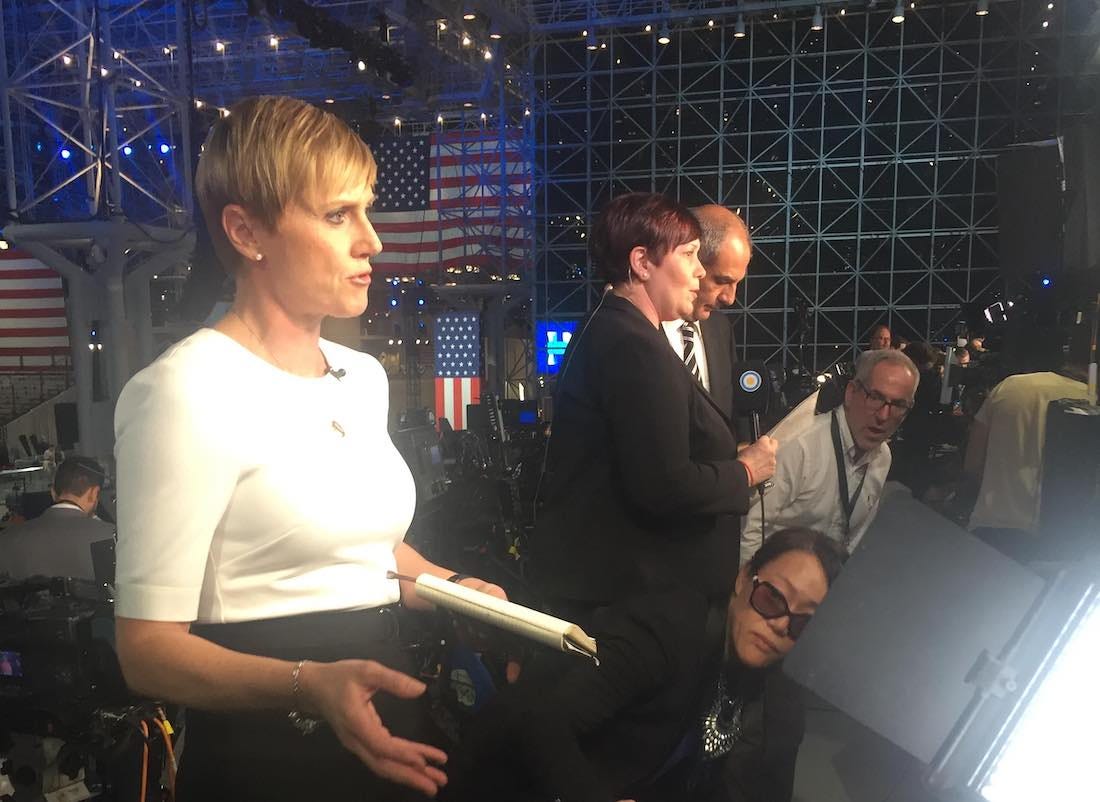
Zoe Daniel was one of the few journos who saw the rise of Donald Trump coming, and that all came from her dedication to reporting beyond the big cities, speaking to real people in smaller communities.
Zoe is returning to Australia with her family after finishing her four year stint as Washington Bureau Chief for ABC News.
In that time she has travelled from Alaska to Washington and to 44 states from one side of the United States to the other.

Above: Flying in report in Alaska
She was one of the few journalists who wasn’t shocked when Donald Trump was elected President of the United States, but says she didn’t see it coming when she first started in the position.
“When I applied for this job and was interviewed and appointed to the position in mid 2015 of course, the expectation was that Hillary Clinton would win the 2016 election,” Zoe says.
“There was no expectation that this renegade candidate, Donald Trump would win the election over her.
“But of course the 2016 campaign played out very differently to how anyone expected.
“And then really the aftermath of that actually was probably the busiest period of the posting after Donald Trump was inaugurated and he started to implement some of his more controversial policies, things like pulling out of the Paris climate agreement, moving the embassy from Tel Aviv to Jerusalem, pulling out of the Iran nuclear deal, pulling out of various trade agreements around the world and sacking staff left right and centre.”
She says it was clear from her interviews with everyday Americans on the campaign trail that Donald Trump would be elected.
“On election night in 2016 for example, I was at Hillary Clinton’s event and obviously there was complete devastation there when she didn’t win the election,” she says.

Above: With Brad Fulton. Presidential Nominee Hillary Clinton in background. Independence Hall, Philadelphia, election eve 2016.
And one of her supporters said to me, “I feel like our country has been taken over by aliens and I just don't know these people.”
“I said, ‘Well, have you ever been to Ohio or Kentucky or any of the inland states and talked to people about their thoughts and feelings and their needs and frustrations?’ And he said, ‘Oh no. No, if I go anywhere, I go to Europe.’
“So I think there is that disconnect within the US, and that’s something that as a correspondent, you have to work to not get caught up in and try to interact with people from all different walks of life to get a sense of what their experiences are.”

Above: Interviewing in West Virginia during the US 2018 midterm elections.
Zoe tells us via Skype in her last days in Washington, about the life of a foreign correspondent.
With the USA now starting impeachment proceedings against President Donald Trump, Zoe says she’s learnt to have no regrets about the timing of leaving the countries she’s grown to love on her postings.
“I would kind of like to, I guess complete that story,” Zoe says.
“It’s something that I’ve been working on in various ways, probably throughout the Trump administration because it’s been speculated for so long that the Democrats would go down this path. It’s a little frustrating.
“It is a little tempting to try and stay on for a couple more days. But I think the thing that you learn when you’re a correspondent and particularly in this posting, is that there’ll always be another story. You’ll always be leaving something unfinished. It’s never going to be quite a job done."
This brave storyteller has worked on the frontline of some of the world’s worst disasters and most protracted conflicts, from Africa, to Thailand, and finally her posting in the United States.

Above: Interviewing Acting President of Venezuela Juan Guaidó
On this episode of The Journo Project, Zoe also talks about what coping mechanisms she has developed over the years when covering disasters and dealing with communities in shock, and then having to bring those stories back to the Australian community.
“I think the world that we live in now makes it much more difficult to switch off because we’re always connected and it’s very difficult, especially when you’re in this kind of role to just get away from your phone and put it down because you do need to be plugged in all the time because things happen and then when they happen you need to react to it and quickly,” she says.
“Even just last night as an example, I was home chopping up vegetables for dinner and suddenly there was a flash on my phone that there was a mass shooting on a military base in Hawaii. So I sent out a message to all the staff, started thinking about what we would do if we needed to move people who we would move, what the logistics would be. Thankfully it turned out to be not as serious as it first looked, but you are hypervigilant all the time.
“I do think that when you’re not working, one strategy is to have really quality time with friends and family and try to really make that count. And so with my kids for example, we try to, when we have holidays, we try to really enjoy them and have a lot of time together as a family unit. So it gives you something to look forward to and I guess you sort of work really hard the rest of the time.”
What I’m reading and listening to
This podcast from my amazing journo friend Amy Taylor-Kabbaz is not to be missed. Her Happy Mama Movement podcast is always fabulous, as is Amy’s focus on what happens to a woman when she becomes a mother.
This episode of her podcast stopped me in my tracks. Amy’s interview with author and fellow journo Melanie Dimmitt about her experience giving birth and now raising a child with severe disabilities is the kind of conversation we need more of. Melanie’s whole world and identity shifted, and she has found happiness. In this episode she shares not only her own story, but that of 50 other parents of children with various disabilities she interviewed around the world for her book “Special: Antidotes to the obsessions that come with a child’s disability”, to better understand what true acceptance means.
Acceptance is a beautiful thing. It's that time in your life when you stop fighting, you let go of the stories and the expectations and the grief, and you accept. You see that it is what it is. You even begin to find the joy in it all. And acceptance is often what we want—and are told we should get.
Take Your Time with Melanie Dimmitt —Her Happy Mama Movement podcast, episode 120
And another in the “how good is this kid?!!!!” series—good on you Stuart—show us all what a difference one motivated person can make on this crazy little planet we all share.
“I’ve been going down early every day after school and catching the catfish and cod and taking them out and putting them in a dam, keeping them alive as much as I can.”
Politics, business, the arts, sports, and more: Leigh Sales, previous Journo Project interviewee recounts her most memorable interviews of 2019.
Every year, I am incredibly privileged to interview all kinds of people—world leaders, Australians living through the worst experiences of their lives, beloved writers and celebrities.
Leigh Sales's most memorable interviews of 2019 —ABC News
Listen again: Leigh Sales adds Walkley-winning book to her repertoire
Upcoming
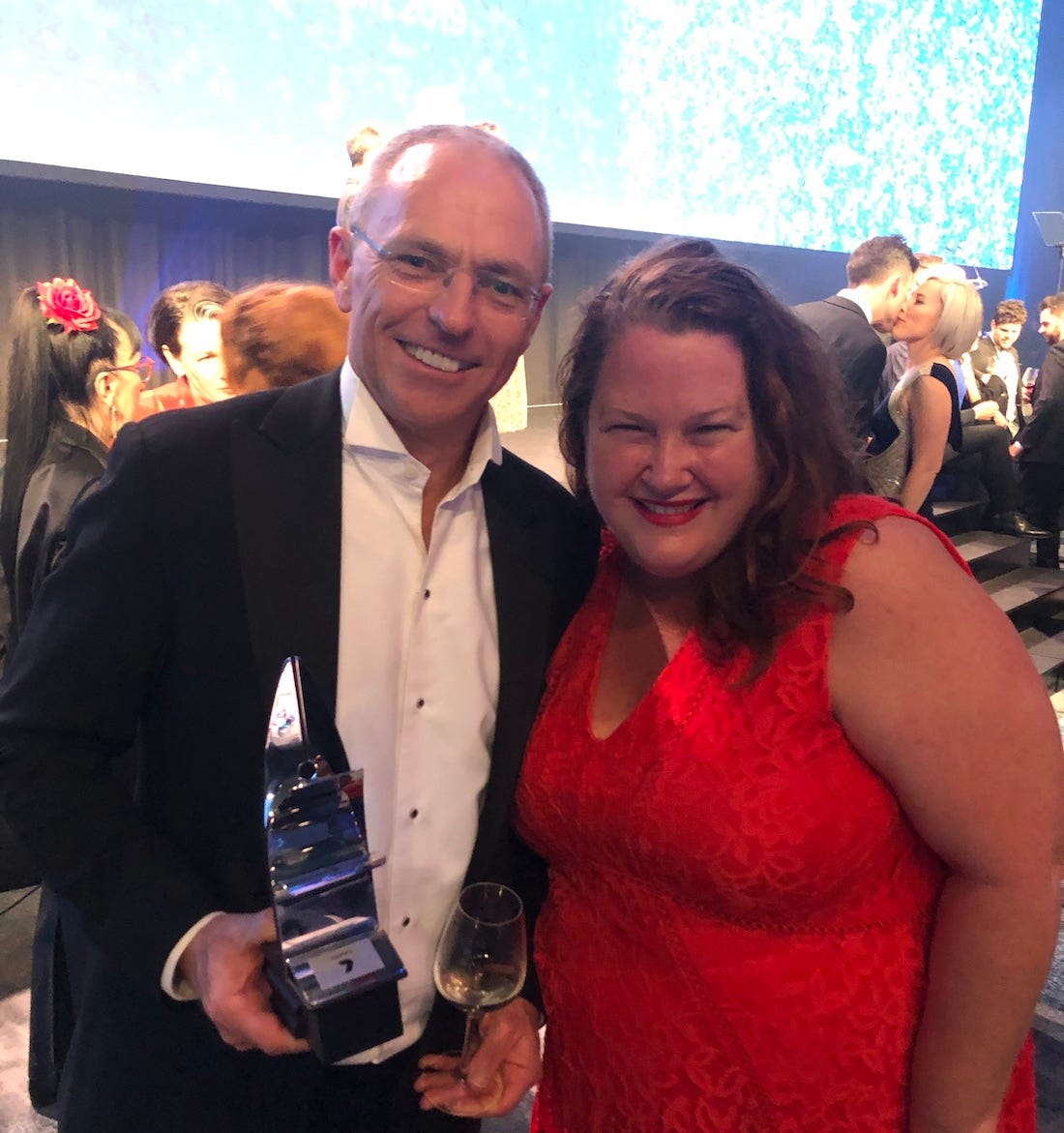
And lastly, the Journo Project’s Christmas edition will feature one of the great stalwarts of Australian journalism, Walkley Award winner Chris Reason. He started his life in journalism delivering papers for the Redland Times in south-east Queensland’s sleepy bayside, before moving onto a cadetship at the famous Queensland daily newspaper The Sun, and then becoming the youngest correspondent in the Seven Network’s history when he was posted to London. He’s now Seven’s Chief Reporter. His television reports are seen all over Australia, covering some of the toughest stories such as the Boxing Day tsunami in Thailand and then Banda Aceh; the Fukushima nuclear disaster; Barack Obama’s election; Nelson Mandela’s funeral; and the September 11 terrorist attacks from on the ground in New York. He has covered many Federal and State elections, and Olympic Games. In 2015, Chris Reason won the Graham Perkin Award for his coverage of the Lindt Cafe siege. Chris tells us on The Journo Project about the high cost involved for many journos when they’re on the front line of such events, and the vital role of the press to keep people informed and to hold those in power to account.
The news doesn’t stop at this time of year and neither does The Journo Project! So sit back and enjoy your Journo Project podcasts, whether you’re laying down on the beach, or in the GU position stretched out on the couch (guts-up!) after Christmas lunch and need some time out—you’ve got Australia’s best journos in the palm of your hand and at the end of your headphones through your podcast app or by pressing the podcast link at the top of this email.
Talk soon! Merry Chrissy all!
Nance








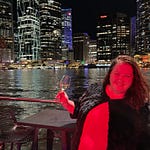

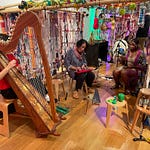
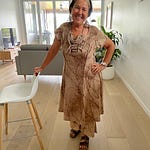

Share this post